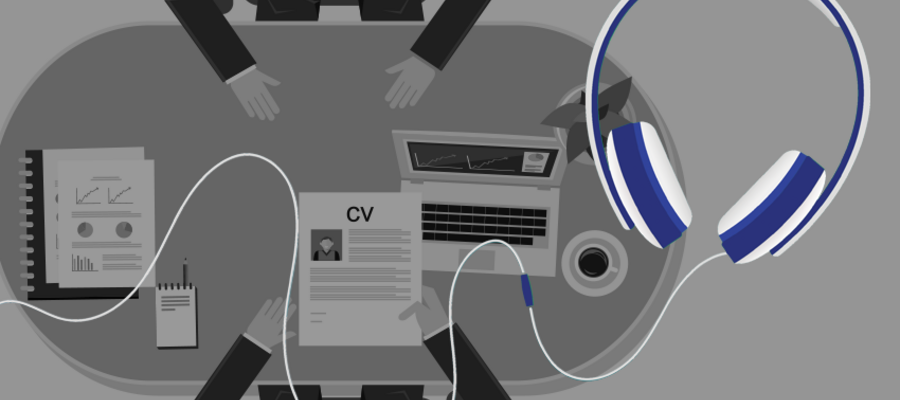become podcast
Applying for a new role can be a daunting process. Our podcasts are here to make the process as seamless as possible, by providing you with the information and tools you need to land your next dream role. Hosted by our experienced Australia, Hong Kong and UK teams, we aim to help you stand out and showcase your ability and experience.
Listen to our latest Podcast - how to prepare for a job interview
There are a lot more to preparing for a job interview than what people think. Those who have prepared well for their interview can be easily distinguishable from those who haven’t.
Top Tips:
Research the basics; Google search the location, transport, the time you’re meeting on the day. All these things are really important to help you feel confident for the interview.
Don’t be caught out on public transport. Plan ahead of time. Don’t be late, there’s no excuse. Get there on time. It is your responsibility.
What else should candidates be looking for to prepare for an interview?
The people you’re meeting is a really good way to start. Use tools like LinkedIn to research the person you’re your meeting. Get to learn their background, what their role is, their company and the people that work there, where have they been before, have they worked in an agency or smaller client side.
Look at trade press, check to see if that company has won any clients, have they won any acquisitions etc. By showing you have done your research, it demonstrates you have really prepared for the interview.
By looking through LinkedIn and all the trade press and selecting the relevant areas to discuss during your interview, this helps to show your interest in working for the company.
Don’t be afraid to reach out to your own network. This is your career, it’s a two-way street. So, you want to gather as much information as possible.
Research the job:
Ask for a job description if they have one. If not, reach out and try to find one.
Prepare by thinking why you meet the criteria. eg. If they’re looking for a super organised person, don’t just say you’re organised. You should back it up with evidence and examples. Be specific with examples and back it up with achievements you have. Use good stories and examples you can talk about.
What if you’re going through a recruiter, how can we help?
A recruiter will help you with details on what you should wear and explain what the company culture is like.
There are many benefits of using a recruiter, as they have probably been there, have a feel for the culture and may even have worked with the client for years before, and have recruited with them before.
Preparation on your CV:
Make sure you know your CV inside and out! It can be embarrassing if you don’t know your CV well. You should be able to talk through all the examples in a clear and well-thought-out manner.
Nothing worst being caught lying. It is very obvious when someone is lying about their experience and the dates on the CV.
The type of person you’re being interviewed by may dictate the types of questions asked, this is dependent on their role in the company, and which department they are from. For example, if they’re from HR, they may ask situation and competency-based questions, in contrast to the Creative Director, who may ask more about your portfolio etc.
Any Final Tips?
Towards the end of the interview, they will likely ask if you have any questions. At least have two or three questions prepared beforehand, nothing is worse than sitting in silence.
Examples can be; company growth? Any career opportunities available? What is the culture like? What backgrounds do people come from? Who are the highest performers? Go armed with a few different questions to ask.
Show interest and challenge the interviewer.
The interviewer is on your side. They are taking their time and want you to succeed. They want you to be right for the role. The rest is up to you! Do your homework, learn your stuff. And you’ll be fine! Good luck!
Check back to www.becomerecruitment.com/podcast to keep up to date with all the latest news and podcasts.

